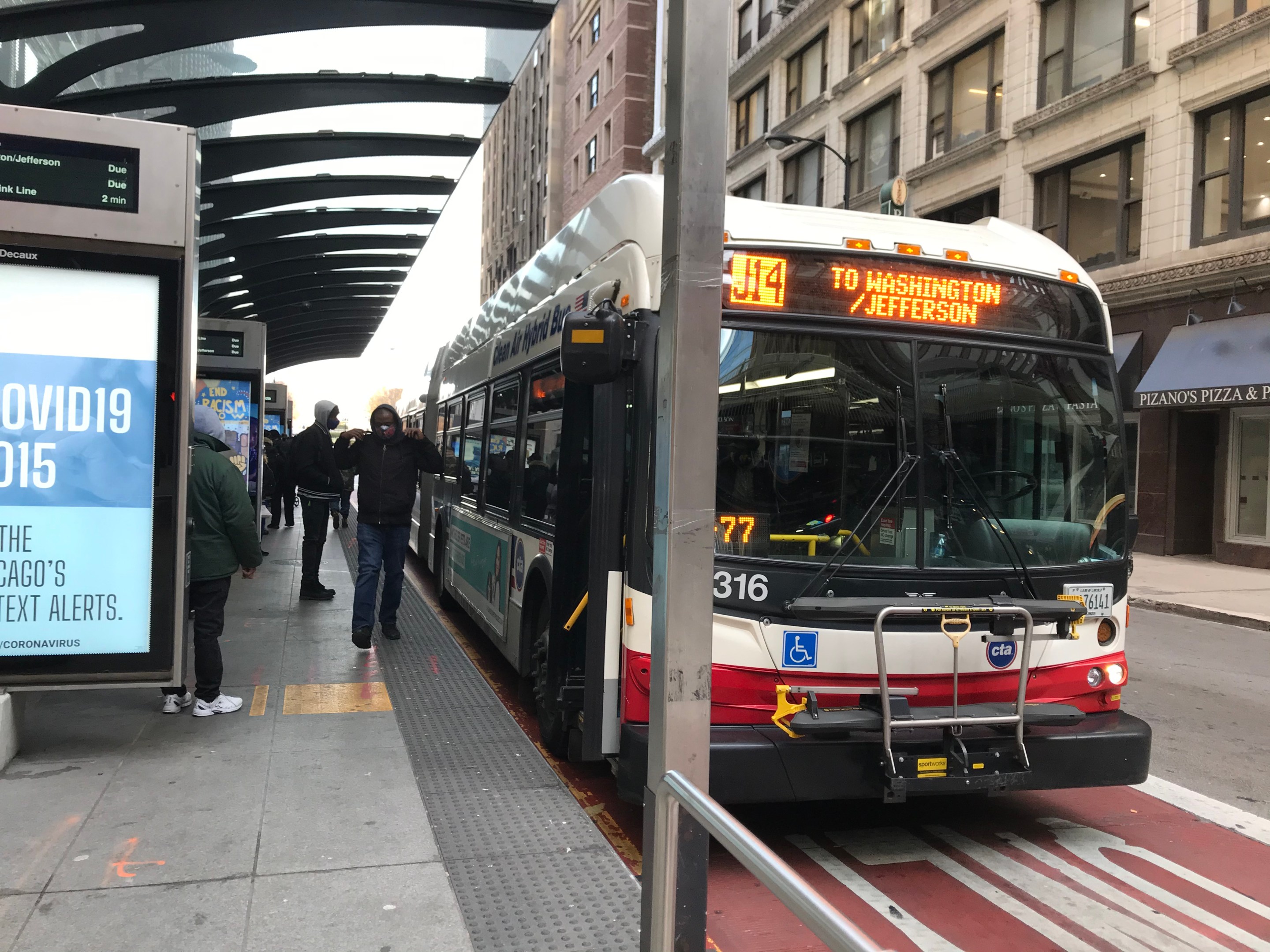This week, over 100 Active Transportation Alliance members logged into Zoom for ATA's annual meeting. The hour-and-half agenda—which included volunteer recognition, the year’s accomplishments, 2021 priorities, and breakout room discussions—distilled the massive pressure COVID-19 put on transportation advocacy, and the small victories for public space and walking, biking, and transit that likely wouldn’t have happened under normal circumstances.
Advocacy manager Julia Gerasimenko kicked things off, announcing the two City Advocate of the Year awardees. Romina Castillo, and employee of the urban planning firm Muse Community + Design and and in-house consultant with the Chicago Department of Transportation, was recognized for her role in the city’s West Side Vision Zero efforts, the Divvy expansion, and Slow Roll Chicago community bike rides. Pha'Tal Perkins, founder of Think Outside Da Block and a community representative for the Mayor’s Bicycle Advocacy Council, for organizing the Roll N Peace community bike rides in Englewood, and his violence prevention work with Teamwork Englewood.
ATA advocacy manager Maggie Czerwinski announced the Suburban Advocate of the Year, Wharton Sinkler, founder of the Des Plaines Bike and Pedestrian Advisory Committee, for helping improve walking and biking safety in the northwest suburb, particularly at the S-curve along Northwest Highway.
The new board slate was then presented and approved, and ATA executive director Amy Rynell reflected on the year past. Rynell said 2020 drove home three major lessons—not necessarily new—about transit in Chicago. One, public transportation is a lifeline for Chicagoans, more than a quarter of whom don’t own cars, Two, walking and biking boomed during the pandemic, and the city must prioritize people over vehicles to make biking and walking safer for all. And three, the racial and economic inequalities plaguing our city’s transportation system were intensified by the pandemic.
Rynell then listed 10 accomplishments from 2020:
- COVID safety procedures on transit: advocating for rear-door boarding on buses, PPE for bus drivers, and transparency about airflow circulation, to keep transit safe and reliable during the shutdown.
- Along with transit advocacy partners nationwide, securing $1.6 billion in federal funding as part of the CARES act, which averted financial disaster for transit systems nationwide through the summer and fall.
- Responding to the transit shutdowns during Black Lives Matter protests in May and August, advocating for keeping trains, buses and Divvy running for essential workers during times of unrest.
- New dedicated bus lanes: Well-enforced bus lanes reduce bus bunching and allow for running more buses, which decreases crowding and allows for physical distancing between passengers. CTA buses, which are heavily used by essential workers, have seen much less of a ridership drop than 'L' trains, which normally see heavy use by white-collar workers now working from home, and adding new bus lanes is high on Active Trans’ list of priorities for 2021.
- The impending launch of the Fair Transit South Cook pilot program, which will lower fares on Metra’s Electric District and Rock Island District lines serving the South Side and south suburbs, and simplify transfers between those lines and Pace buses.
- Dedicated funding for active transportation in the city’s first capital plan, which includes $49 million improvements to bike lanes and priority bus routes.
- Designation of bike shops as essential services: a key ingredient to the cycling boom of the summer.
- Trail Connect Chicagoland campaign: There’s a lot of complex ground to cover to close the gaps between five major trails, but headway was made in 2020, including the completion of the Lincoln Village Pedestrian Bridge, aka the Stone Free Bridge, and plans for a new trail over Lake Calumet which will connect the Pullman National Monument to Big Marsh Park.
- Metra’s new bike car: Along with statewide bike advocacy group Ride Illinois, ATA advocated for Metra to make it easier for cyclists to bring their bikes on board by allowing bikes on all trains during the pandemic, and the railroad is also dedicating a special car with bike racks. The hope is the bike car will be popular and become a permanent feature on Metra trains.
ATA campaign organizer W. Robert Schultz III briefly summarized priorities for the year to come. In light of the ongoing pandemic, ATA is pressing for more investment in bus service, with a focus on new dedicated bus lanes, fare discounts for low-income residents and all-door boarding, as well as the development of a walking and biking recovery network consisting of more protected bike lanes, Neighborhood Greenway side street routes, and off-street trails. Also pressing is the need to advocate for additional desperately needed federal funding to avert an impending public transportation funding crisis and resulting service cuts and/or fare hikes.
Schultz said the two primary concerns for ATA in the year to come are sustaining the biking and walking boom prompted by the pandemic shutdown, and ensuring the reliability and stability of public transportation. These are no small concerns to be sure, and there are large fiscal mountains to scale. It was encouraging to see a hundred-plus transportation advocates show up to support the work, albeit in little Zoom boxes.






